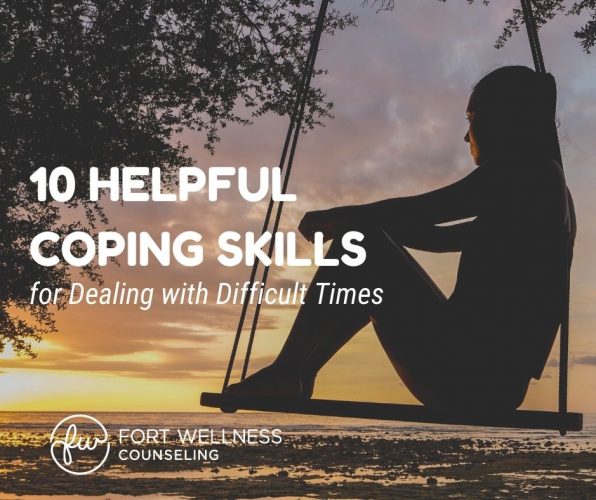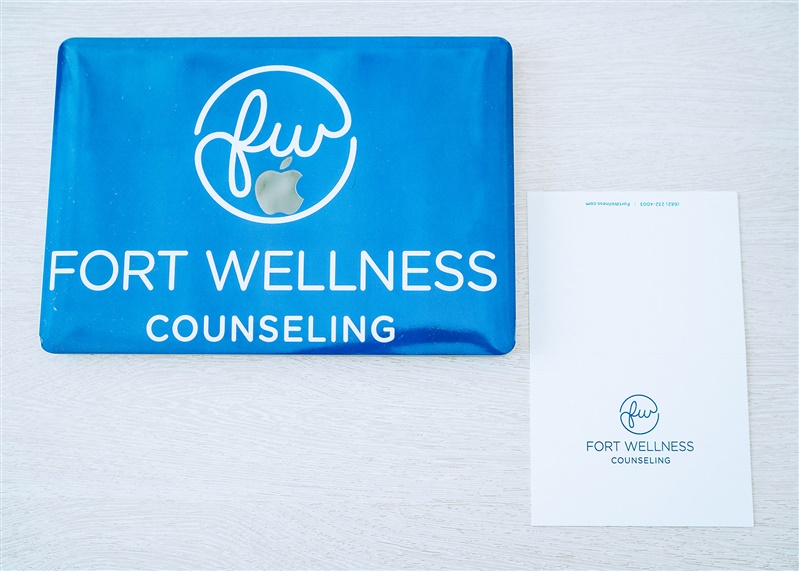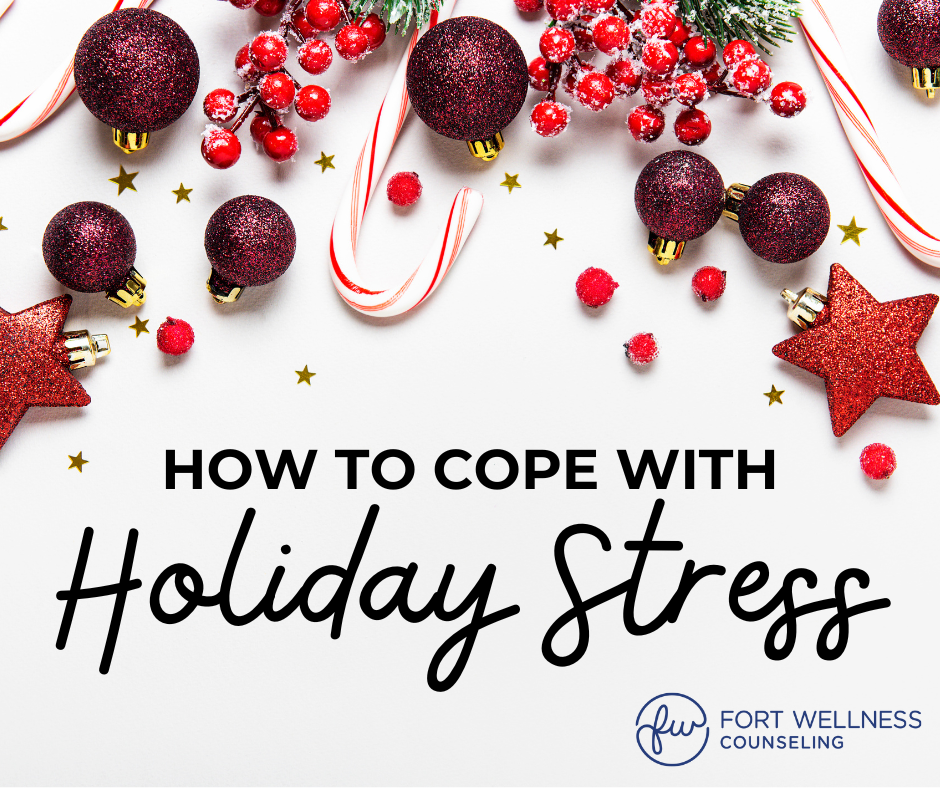
Offering Support After the Texas Hill Country Flooding
Offering Support After the Texas Hill Country Flooding By: Rane Wallace, MS, LPC, LCDC, SAP When tragedy strikes, it comes out of nowhere. And it

Attending individual counseling sessions with a therapist can help you learn more helpful therapy coping skills and coping mechanisms to get through difficult times. The Covid-19 pandemic has negatively impacted people’s mental health in substantial ways. Recent research shows that 4 out of 10 adults in the United States reported symptoms of depression and anxiety. That’s nearly 4 times the amount prior to the pandemic.
Unfortunately, I suspect the ripple effects from the pandemic will be seen for years to come. In this article, I will provide you some helpful strategies and coping skills for getting through tough times. Below, I’ve got 10 helpful coping skills that you can use to deal with difficult times.
Social connection and social support are foundations to our emotional well-being. It is very important to connect with others. Here are some ways you can connect with others: phone calls, text messages, zoom meetings, FaceTime, or even meeting outside or somewhere safe. It’s not unusual for two good friends to be waiting for the other to call the other. Just pick up the phone and call them! You can avoid FOMO (fear of missing out) by doing so.
Using your senses helps to ground you and relieve symptoms of anxiety. Create a list of activities that you can do that will allow you to focus on your senses. Activities that engage the senses include some of the following: exercising, drawing, painting, cooking, gardening, listening to music, knitting, gardening, doing a puzzle, etc. Grounding yourself with the 5 senses is a great therapy coping skill.
Use positive self-talk and tell yourself that you will get through this. It’s a solid coping skills discussed in therapy. It’s temporary and this too shall pass. Stay optimistic and focus on what is going well instead of what is not going well. It’s going to be ok. Remind yourself just that. In therapy, cognitive behavioral therapy can be used to combat negative self-talk.
Exercise can do wonders for our emotional and physical health. Step up your game since we are in challenging times. See if you can have a friend or family member do it with you if you don’t want to do it by yourself. You can go for a walk, run, etc. Research shows that exercising can be just as effective as therapy. By doing therapy and exercise you can improve your mood stability.
Acknowledge your emotions and don’t hide from them. It’s not helpful to bottle them up. Use these three components: A.) identify your physical sensations, body cues and thoughts B.) Label the emotion C.) Manage the emotion. Managing your emotions all starts with self-awareness.
Fun fact regarding emotions. In therapy, you’ll never hear me say, “well, how does that make you feel.” That’s what you see on TV. I cringe when I hear that phrase. You might hear me say, “what was that like for you” or “tell me more about that.” In therapy, I do put a high emphasis on emotion regulation skills and improving emotional intelligence.
Talking to someone about our problems allows them to not fester and get bigger. Attending counseling with a therapist can be helpful for this part and has a lot of benefits. Attending therapy can do wonders for your mental health. Don’t let things bottle up. Have you ever seen what happens to diet coke when you put a mentos in it? The same things happen if we stuff our emotions and don’t talk about them or process them.
In challenging times, we must focus more heavily on our own self-care. What works for non-challenging times might not work for challenging times. Add additional strategies and tools in your toolbox for these tough times. You can learn more coping skills in therapy.
Journaling can have a helpful impact on your well-being. There is something to be said about writing things down which allows you to process them. Journaling on a regular basis can be a powerful tool to generate better self-awareness. If you want some assistance, check out these 10 journaling prompts for mental health to get you started. Want a good prompt to journal about? You can try gratitude to start or some other mental health journal prompts.
Find something you enjoy reading and treat yourself. Read somewhere quiet and enjoy this helpful activity. So many different reading topics out there – make sure to choose one that will lift you up.
Practice some relaxation techniques. For example, work on some pleasant imagery where you envision yourself somewhere else while focusing on deep breathing. You can walk throughout through the previously mentioned 5 senses and really work on taking big deep breaths in, and even bigger exhales out. Breathe in for 3 or 5 seconds, and exhale for 5 or 7 seconds. Breathe in some relaxation and blow out toxicity.
I hope that you found these different therapy coping skills and strategies to be helpful. Just remember, coping skills and using some of these different strategies require practice to master. Don’t be discouraged if you try one out and it doesn’t work. Practice, practice, and more practice. Different situations call for different skill sets. Continue to improve your emotional well-being, get 1% better in all that you do, and be kind to yourself. If you find these to be helpful, you might also like this article that has 15 different stress management coping skills.
Stay up to date and connected with the latest blog articles by following Fort Wellness Counseling on the social media platform of your choice: Facebook, Instagram, YouTube, LinkedIn.
If you found this article to be helpful, you might consider checking out some of our other helpful reads, which includes, but not limited to:

Offering Support After the Texas Hill Country Flooding By: Rane Wallace, MS, LPC, LCDC, SAP When tragedy strikes, it comes out of nowhere. And it

Family Vacations & Your Mental Peace: Strategies for Stress-Free Summer Travel By: Rane Wallace, MS, LPC, LCDC, SAP Of course, traveling with your family is

Mental Health 101: Debunking Common Myths By: Rane Wallace, MS, LPC, LCDC, SAP Every May, Mental Health Awareness Month raises awareness and advocacy for people

Medical Trauma: Understanding and Healing from Difficult Healthcare Experiences By: Rane Wallace, MS, LPC, LCDC, SAP Over the years, I’ve come to understand that for

Social Media Depression: Beyond FOMO to Algorithm-Induced Mood Change By: Rane Wallace, MS, LPC, LCDC, SAP I’ve seen this happen so many times with patients,

How to Wind Down at Night: Simple Sleep Hygiene Tips By: Rane Wallace, MS, LPC, LCDC, SAP Sleep hygiene might sound like a fancy term,

Pregnancy and Postpartum Anxiety Treatment in Fort Worth By: Rane Wallace, MS, LPC, LCDC, SAP Have you or a loved one experienced anxiety during pregnancy

Breaking the ‘New Year, New Me’ Mindset: A Guide to Sustainable Change By: Rane Wallace, MS, LPC, LCDC, SAP In my years as a therapist,

How to Support a Partner with Chronic Illness: A Mental Health Perspective By: Rane Wallace, MS, LPC, LCDC, SAP Living with a chronic illness can

EMDR for Attachment Issues: Building Healthy Relationships By: Rane Wallace, MS, LPC, LCDC, SAP When you hear “EMDR therapy” (Eye Movement Desensitization and Reprocessing), you

How to Deal with a Narcissistic Partner By: Rane Wallace, MS, LPC, LCDC, SAP Do you ever feel like your partner thinks they’re better than

How to Recover from Burnout By: Rane Wallace, MS, LPC, LCDC, SAP Burnout is a common struggle in today’s fast-paced world. Life’s relentless demands can

The Benefits of Attending Couples Counseling By: Rane Wallace, MS, LPC, LCDC, SAP There’s a misconception about couples counseling – that it signals the end

Things to Know About Individual Counseling in Fort Worth, TX By: Rane Wallace, MS, LPC, LCDC, SAP May is Mental Health Awareness Month, a good

Everything You Need to Know About EMDR Therapy By: Rane Wallace, MS, LPC, LCDC, SAP Have you heard about EMDR therapy and want to learn

What is Nature Therapy? (And Why You Should Be Doing It!) By: Rane Wallace, MS, LPC, LCDC, SAP Let’s face it: there’s just something about

The Benefits of Virtual Therapy in Texas By: Rane Wallace, MS, LPC, LCDC, SAP Technology is changing everything, and healthcare is no different! Thanks to

How to Get Over a Breakup By: Rane Wallace, MS, LPC, LCDC, SAP Breaking up with a romantic partner is painful – no matter the reason

How to Set New Year’s Resolutions By: Rane Wallace, MS, LPC, LCDC, SAP How to Set New Year’s Resolutions Setting goals gives us a sense

How to Cope with Holiday Stress By: Rane Wallace, MS, LPC, LCDC, SAP Say No to Prevent Burnout There are an abundance of obligations that

Trauma Therapy in Fort Worth: Types, Benefits & More By: Rane Wallace, MS, LPC, LCDC, SAP Believe it or not, an estimated 60% of men

How to Communicate Better in Relationships By: Rane Wallace, MS, LPC, LCDC, SAP Whether with coworkers or your significant other, the ability to communicate effectively

How to Prevent Seasonal Affective Disorder (SAD) By: Rane Wallace, MS, LPC, LCDC, SAP If you’re struggling with winter blues, know you’re not alone. SAD

What is a Functioning Alcoholic? By: Rane Wallace, MS, LPC, LCDC, SAP When someone is deemed a ‘high-functioning alcoholic,’ they’re able to carry out daily

How to Help Yourself – And Others – with Suicidal Ideation By: Rane Wallace, MS, LPC, LCDC, SAP September is Suicide Awareness Month. And while

32 Questions to Strengthen Your Relationship By: Rane Wallace, MS, LPC, LCDC, SAP When was the last time you had a meaningful conversation with your

The Fawn Response: How Trauma Can Lead to People Pleasing By: Rane Wallace, MS, LPC, LCDC, SAP Do you often find yourself putting the needs

How to Overcome ‘Hangxiety’ (Post-Drinking Anxiety) By: Rane Wallace, MS, LPC, LCDC, SAP Thought the consequences of drinking heavily were merely physical? Unfortunately, you’ll have

What is Box Breathing? Plus Tips for Beginners By: Rane Wallace, MS, LPC, LCDC, SAP Ever heard of box breathing? This popular relaxation technique involves

Do Mindfulness Exercises for Anxiety Work? By: Rane Wallace, MS, LPC, LCDC, SAP Do mindfulness exercises for anxiety work? If you (or people in your

What is Trauma Bonding? 4 Warning Signs By: Rane Wallace, MS, LPC, LCDC, SAP If you’ve ever been in an abusive relationship and felt bonded

Why Do We Cry? 4 Reasons and Crying Benefits By: Rane Wallace, MS, LPC, LCDC, SAP There’s no getting around it – crying is part

What Is Habit Stacking? (And How to Do It) By: Rane Wallace, MS, LPC, LCDC, SAP Supporting our mental health is one of those goals

5 Tips for Living with Someone with OCD By: Rane Wallace, MS, LPC, LCDC, SAP While living with OCD (obsessive-compulsive disorder) can be demanding, living

What is Assertive Communication? By: Rane Wallace, MS, LPC, LCDC, SAP So, what is assertive communication? Well, in a nutshell, this communication style aims to

PTSD Counseling in Fort Worth: Proven Coping Strategies By: Rane Wallace, MS, LPC, LCDC, SAP For those who didn’t already know, post-traumatic stress disorder (PTSD)

Brainspotting vs. EMDR: What’s the Difference? By: Rane Wallace, MS, LPC, LCDC, SAP According to the National Council for Mental Wellbeing, 70% of American adults

Mindfulness Exercises to Strengthen Your Recovery By: Rane Wallace, MS, LPC, LCDC, SAP Are you recovering from alcohol and/or substance abuse? Self-improvement is a life-long

How to Find a Counselor in Fort Worth By: Rane Wallace, MS, LPC, LCDC, SAP Are you considering therapy? If so, finding a counselor in

How To Not Be Codependent In A Relationship By: Rane Wallace, MS, LPC, LCDC, SAP Wondering how to not be codependent in a relationship? Sometimes

What is Parental Anxiety? Coping Tips from a Therapist By: Rane Wallace, MS, LPC, LCDC, SAP Every parent wants to shield their child from danger

What is EMDR Therapy? By: Rane Wallace, MS, LPC, LCDC, SAP Ever heard of eye movement desensitization and reprocessing therapy? More commonly known as EMDR,

8 Proven Tips to Sleep Better at Night (and Improve Your Mental Health) By: Rane Wallace, MS, LPC, LCDC, SAP Struggling with restless nights and

How to Have a Healthy Relationship with Social Media By: Rane Wallace, MS, LPC, LCDC, SAP In today’s world, there’s no escaping the presence of

What Is The Goal of Psychotherapy? By: Rane Wallace, MS, LPC, LCDC, SAP Have you been considering psychotherapy? The start of a new year is